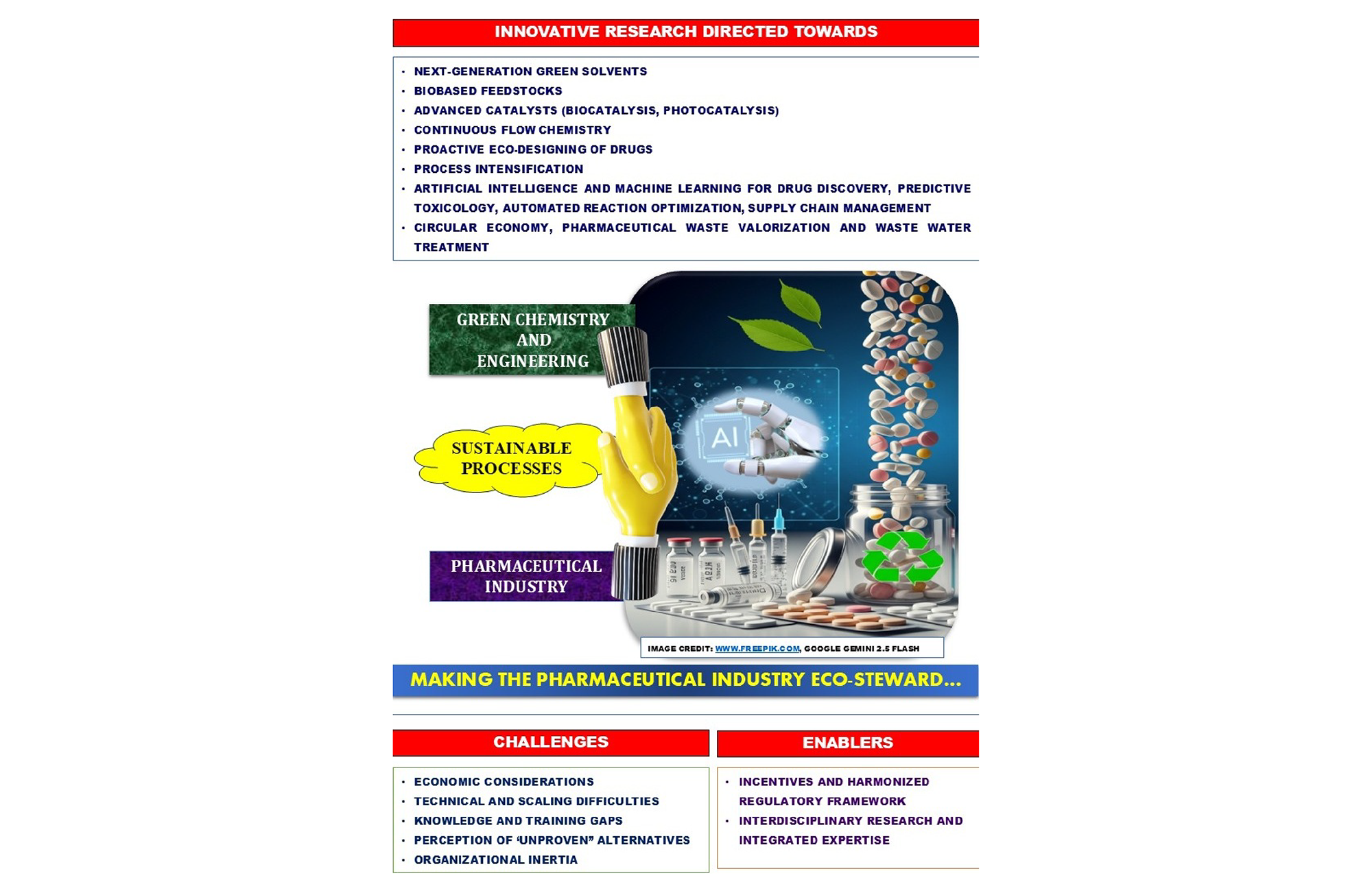
APA Style
Rocktotpal Konwarh. (2025). Embracing Sustainable Processes in the Pharmaceutical Industry with Green Chemistry and Engineering. Sustainable Processes Connect, 1 (Article ID: 0013). https://doi.org/10.69709/SusProc.2025.133442MLA Style
Rocktotpal Konwarh. "Embracing Sustainable Processes in the Pharmaceutical Industry with Green Chemistry and Engineering". Sustainable Processes Connect, vol. 1, 2025, Article ID: 0013, https://doi.org/10.69709/SusProc.2025.133442.Chicago Style
Rocktotpal Konwarh. 2025. "Embracing Sustainable Processes in the Pharmaceutical Industry with Green Chemistry and Engineering." Sustainable Processes Connect 1 (2025): 0013. https://doi.org/10.69709/SusProc.2025.133442.
 ACCESS
Review Article
ACCESS
Review Article
Volume 1, Article ID: 2025.0013

Rocktotpal Konwarh
rock1311@gmail.com
1 Baba Kinaram Research Foundation, 769/1-A, Brahmsthan Sahadatpura, Mau, Uttar Pradesh, 275101, India
Received: 26 May 2025 Accepted: 25 Aug 2025 Available Online: 26 Aug 2025
The pharmaceutical industry, while vital for global health, grapples with intensifying pressure to mitigate its substantial environmental footprint, characterized by extensive waste generation, high energy consumption, and reliance on hazardous chemicals. It is imperative to integrate green chemistry and engineering principles across the pharmaceutical lifecycle, as reflected in the various recent studies cited in this article. Various realms of innovation, including the development of next-generation green solvents, the transformative potential of advanced catalysis for milder, more selective reactions, and the efficiency gains from advanced process intensification and continuous-flow-dependent active pharmaceutical ingredient (API) synthesis, are discussed. Artificial intelligence and machine learning (AI/ML) can play a pivotal role in drug design and discovery, predictive toxicology, automated reaction optimization, and sustainable supply chain management. Implementing circular economy principles, such as harnessing biobased feedstocks, waste valorization and treatment as well as harmonized regulatory frameworks and incentives are crucial. Even with clear benefits, the pharmaceutical industry faces several obstacles in broadly adopting and scaling up green chemistry. These include technical difficulties, economic considerations, knowledge and training gaps, and resistance to ‘unproven’ methods, among others. The write-up, evinced by a few select topical reports, underscores that adopting these greener approaches is not merely an environmental obligation but a strategic imperative for economic viability, enhanced safety, and improved public perception within the evolving pharmaceutical landscape.

Disclaimer: This is not the final version of the article. Changes may occur when the manuscript is published in its final format.
We use cookies to improve your experience on our site. By continuing to use our site, you accept our use of cookies. Learn more